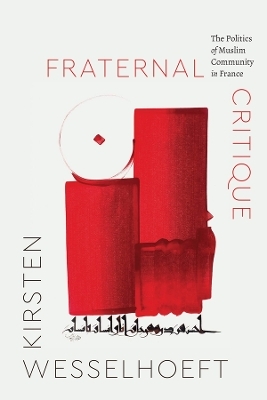
Fraternal Critique
The Politics of Muslim Community in France
Seiten
2025
University of Chicago Press (Verlag)
978-0-226-83828-1 (ISBN)
University of Chicago Press (Verlag)
978-0-226-83828-1 (ISBN)
- Noch nicht erschienen (ca. März 2025)
- Versandkostenfrei
- Auch auf Rechnung
- Artikel merken
An exploration of ways that discord binds rather than divides communal life, through an ethnography of French Muslim activism.
The conversation about Islam in France is framed by the presumption that Muslim communities are a threat to secular solidarity or fraternité. In the face of state repression, French Muslims have not closed ranks around a narrow range of voices; instead, Kirsten Wesselhoeft finds that young Muslim activists have continued to purposefully spark debate about the values that anchor community life. Wesselhoeft argues that such disagreements, far from dividing communities, actually constitute a form belonging. Some activists call this ethic “fraternal critique,” and Wesselhoeft finds in it profound insights about the place for critique in civic life. The French state has reacted to Muslim solidarity with repression, but Wesselhoeft argues that unity need not come at the expense of dissent. Instead, fraternal critique can teach us how to build communities that are worth fighting over and fighting for.
The conversation about Islam in France is framed by the presumption that Muslim communities are a threat to secular solidarity or fraternité. In the face of state repression, French Muslims have not closed ranks around a narrow range of voices; instead, Kirsten Wesselhoeft finds that young Muslim activists have continued to purposefully spark debate about the values that anchor community life. Wesselhoeft argues that such disagreements, far from dividing communities, actually constitute a form belonging. Some activists call this ethic “fraternal critique,” and Wesselhoeft finds in it profound insights about the place for critique in civic life. The French state has reacted to Muslim solidarity with repression, but Wesselhoeft argues that unity need not come at the expense of dissent. Instead, fraternal critique can teach us how to build communities that are worth fighting over and fighting for.
Kirsten Wesselhoeft is associate professor of religion at Vassar College.
Introduction: Engaged Muslims in a Changing France
Part I: Forming a Contested Community
Chapter One: An Ethics of Discontent
Chapter Two: The People of Knowledge
Chapter Three: Sisterhood and Its Obligations
Part II: The Politics of Muslim Solidarity
Chapter Four: The Specter of Communalism
Chapter Five: From Secularism to Public Order
Conclusion: Social Ethics and the Fragilization of the Collective
Acknowledgments
Notes
Bibliography
Index
| Erscheint lt. Verlag | 22.3.2025 |
|---|---|
| Reihe/Serie | Class 200: New Studies in Religion |
| Sprache | englisch |
| Maße | 152 x 229 mm |
| Gewicht | 454 g |
| Themenwelt | Geisteswissenschaften ► Religion / Theologie |
| Sozialwissenschaften ► Soziologie ► Spezielle Soziologien | |
| ISBN-10 | 0-226-83828-5 / 0226838285 |
| ISBN-13 | 978-0-226-83828-1 / 9780226838281 |
| Zustand | Neuware |
| Haben Sie eine Frage zum Produkt? |
Mehr entdecken
aus dem Bereich
aus dem Bereich
eine Einführung
Buch | Softcover (2024)
De Gruyter Oldenbourg (Verlag)
CHF 41,90


